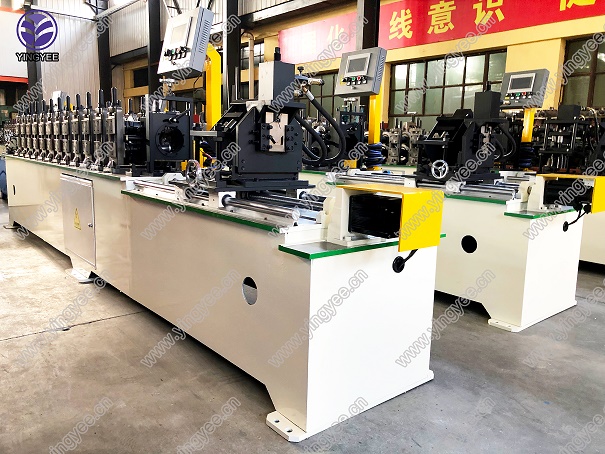
The Importance of Downpipe Machines in Modern Construction
In the realm of construction and industrial activities, efficiency and precision are paramount. One crucial equipment that contributes significantly to these aspects is the downpipe machine. These machines play an essential role in the manufacturing and installation of downpipes, which are vital for effective water management systems in buildings.
Downpipes, also known as rainwater pipes, are responsible for channeling rainwater from roofs to drainage systems, preventing water accumulation that can lead to structural damage. As urban areas develop and weather patterns become more unpredictable, the need for efficient water management solutions has grown exponentially. This is where downpipe machines come into play.
Downpipe machines automate the process of cutting, shaping, and assembling downpipes, ensuring high consistency and quality in the production line. Traditionally, downpipe fabrication required significant manual labor, leading to potential inconsistencies and a higher likelihood of errors. However, with modern downpipe machines equipped with advanced technology, manufacturers can produce downpipes with precision, adhering to the required specifications and standards.

One of the most significant advantages of downpipe machines is their ability to handle various materials. These machines can efficiently process materials such as PVC, aluminum, and steel, allowing for a wider range of applications and configurations. This versatility means that construction projects can be tailored to specific needs, whether for residential buildings, commercial complexes, or industrial structures.
Moreover, the efficiency offered by downpipe machines significantly speeds up the production process. In the fast-paced world of construction, time is often of the essence. Manufacturers can produce larger quantities of downpipes in a shorter timeframe, leading to faster project completion rates. This increased efficiency not only benefits contractors and builders but also reduces costs associated with labor and materials.
Technological advancements in downpipe machines also enhance their functionality. Many modern machines come equipped with computer numerical control (CNC) technologies, allowing for automated programming and adjustments. This level of automation reduces human error, maintains precision, and minimizes waste in material use. Additionally, many downpipe machines are designed to be environmentally friendly, incorporating features that help recycle materials and reduce energy consumption.
In conclusion, downpipe machines are an indispensable part of modern construction practices. Their contribution to efficiency, precision, and versatility ensures that buildings can effectively manage water runoff, protecting structures from potential damage. As the construction industry continues to evolve, downpipe machines will play a crucial role in meeting the demands of urban development and climate resilience strategies. Investing in these machines is not merely an option but a necessity for those aiming to stay competitive in the ever-evolving construction landscape.